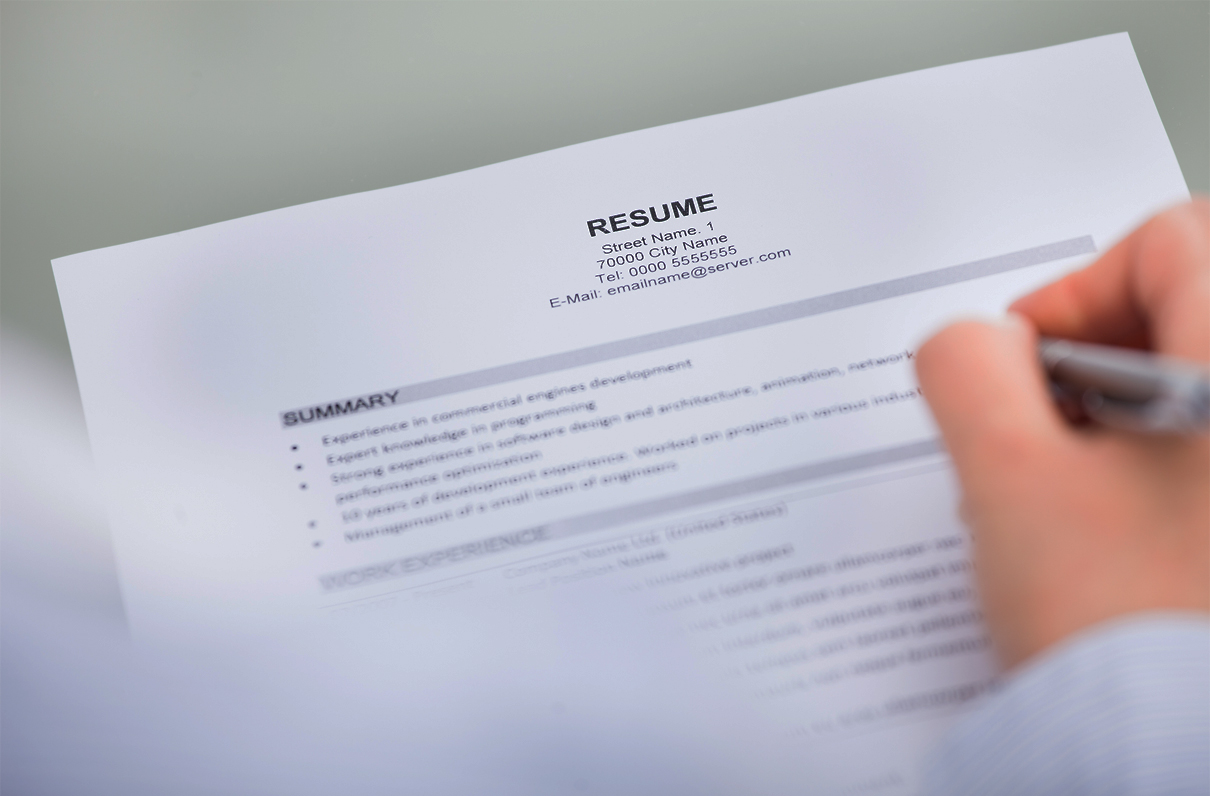The time has come. You're leaving the military and need to write a résumé. The challenge is how to capture the many skills and talents you've acquired in a way that clearly conveys the tremendous value you bring to the table. A résumé is the first stop on the path to post-military employment, and you are well-equipped to write an effective one. Here are the top 10 tips for creating a military résumé.
10. Your résumé is not a biography. Sure, you've probably led a pretty cool life up to this point by virtue of your military service. But employers who pick up your résumé have a specific problem to solve (and the problem isn't to locate a fascinating memoir). Their first priority is to determine whether you are a potential solution to their problem. Resist the urge to include every single detail about yourself, no matter how awesome you are. Stick to skills relevant to what your target employer is seeking.
9. Keep it short. A standard, private-sector résumé should be no longer than two pages, period. Any longer, and no one's going to read it. Stay within this limit by only going back 10 to 12 years in your professional work history. This is considered your most recent and relevant professional experience.
8. Don't try to make the reader an expert. They really don't care about how the military's policy on specialized widgets changed the nature of combat. They do care about how you identified a complex problem, assessed potential options to resolve the issue, and then oversaw implementation of the recommended solution. Give only relevant details to help the reader understand the part you played in a successful outcome.
7. Do you know what CIDBS is? Neither does your reader. Lose the military jargon. Tactical retrogrades, NATO and coalition support, and recommending courses of action during contingency operations is great language if you're advising DoD. However, it is not great language for communicating with a nonmilitary reader who cannot understand military references and acronyms. Your potential employer is attempting to appraise your specific skills based on what you've put in your résumé. Assume your reader knows very little about military operations or procedures. Even if the reader is a veteran, they might understand little about your specific branch of service. Present facts about your skill set as simply as possible.
6. Skip the fancy stuff. Avoid graphics, special characters, special text or fonts, and (always) lavender-perfumed stationery. Employers have a stack of résumés to review and re only quickly skimming yours to see whether you're a potential match for their needs. In a short span of time, a plain, basic font and the occasional bolded text are all that is necessary to call attention to what you have to offer.
5. Include results and achievements. Veterans often provide detailed job descriptions of past positions in their résumés. While this certainly tells what their duties were, it doesn't say a thing about how well those duties were accomplished. So be sure to include results and achievements in your résumé. Results aren't necessarily about how you singlehandedly solved world hunger. Results are simply examples that illustrate how you used your skills in the course of performing your duties. They permit a reader to see how your talents and abilities align with what the company needs. Results from your significant volunteer engagement might also be appropriate.
4. Focus on your skill set. Sometimes veterans' résumés do refer to accomplishments (great!), but then they fail to clarify what skills were used to achieve those outcomes. So instead of, “Handpicked for a top-level advisory board to the under secretary of Defense,” consider “Strong expertise and extensive operational background led to selection as … .” This provides a much clearer picture to the reader of the why, not just the what.
3. Provide a summary paragraph. A summary paragraph should follow your name and contact information at the beginning of the résumé. Its purpose is to allow your reader to quickly ascertain if you're the type of person they're looking for. The operative word here is “quickly.” The summary is the very first part of your résumé that is read and therefore the most important. If the reader sees relevant skills, they'll go on to skim the rest of the document. As a minimum, the summary should include what type of job (or industry) you're interested in and your key qualifications for performing in it. Be succinct. Provide only the top skills desired by your target employer or industry. Everything else will be covered in the interview.
2. Do your homework. Once you have an idea of what type of job or industry you want to pursue, research the skills required to work in that field. Do you have some, most, or all of the desired skills? The answer will help you determine what to focus on in your résumé in order to capture the reader's attention.
1. Know what you want to pursue! Why is this so important? Because you can't convey to an employer how you can be a tremendous asset to them if you don't know who that employer is. If you have an idea about what you want to do in your post-military life, great! If not, take time to reflect and give it some serious thought. If not a specific type of job, it's helpful if you can at least indicate a target industry. Health care? Law enforcement? Logistics? These are all very different fields with their own unique qualifications for success. Knowing where you're headed will help you tailor your résumé to best meet the reader's expectations.
Focusing on these tips will ensure you have a great résumé that is easy to read, easy to understand, and perfectly aligned with the needs of your target employer or industry.
This article was originally published in November 2015.

